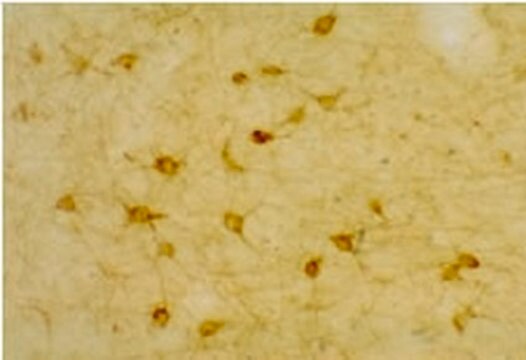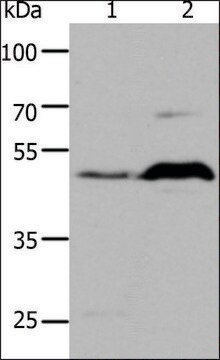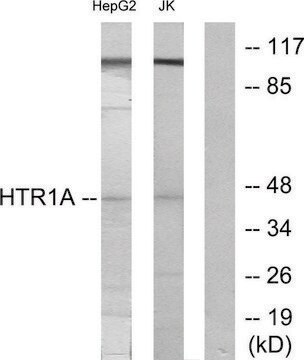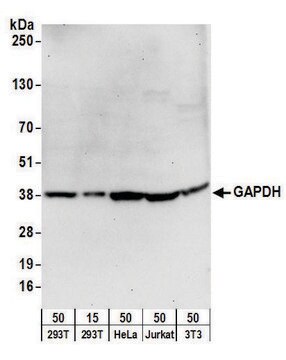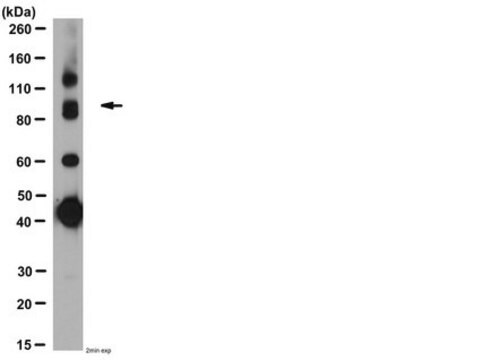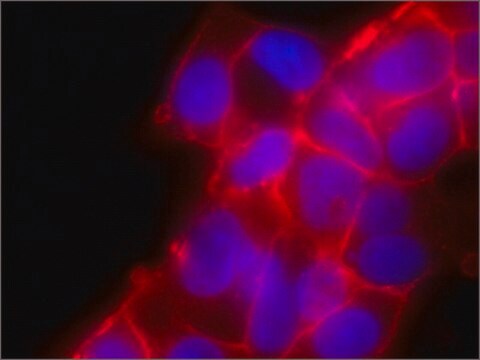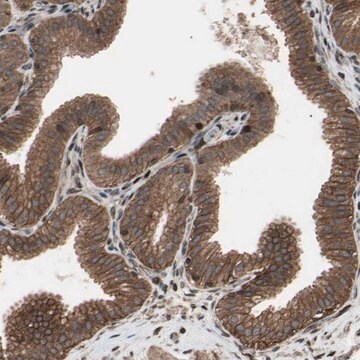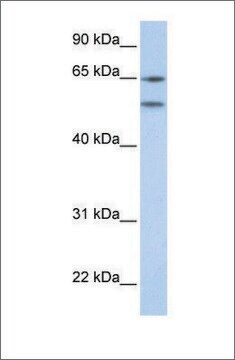MAB11041
Anti-Serotonin receptor 1A Antibody, clone 19A9.2
clone 19A9.2, from mouse
Synonym(s):
5-hydroxytryptamine (serotonin) receptor 1A, 5-hydroxytryptamine receptor 1A, guanine nucleotide-binding regulatory protein-coupled receptor, Serotonin receptor 1A, G protein coupled receptor, 5-HT1a receptor
About This Item
Recommended Products
biological source
mouse
Quality Level
antibody form
purified immunoglobulin
antibody product type
primary antibodies
clone
19A9.2, monoclonal
species reactivity
human, rat
technique(s)
immunohistochemistry: suitable
western blot: suitable
isotype
IgMκ
NCBI accession no.
UniProt accession no.
shipped in
wet ice
target post-translational modification
unmodified
Gene Information
human ... HTR1A(3350)
rat ... Htr1A(24473)
General description
Immunogen
Application
Neuroscience
Signaling Neuroscience
Quality
Western Blot Analysis: 0.5 µg/mL of this antibody detected Serotonin receptor 1A on 10 µg of rat brain tissue lysate.
Target description
Physical form
Storage and Stability
Analysis Note
Rat brain tissue lysate
Other Notes
Disclaimer
Not finding the right product?
Try our Product Selector Tool.
Storage Class Code
12 - Non Combustible Liquids
WGK
WGK 2
Flash Point(F)
Not applicable
Flash Point(C)
Not applicable
Certificates of Analysis (COA)
Search for Certificates of Analysis (COA) by entering the products Lot/Batch Number. Lot and Batch Numbers can be found on a product’s label following the words ‘Lot’ or ‘Batch’.
Already Own This Product?
Find documentation for the products that you have recently purchased in the Document Library.
Our team of scientists has experience in all areas of research including Life Science, Material Science, Chemical Synthesis, Chromatography, Analytical and many others.
Contact Technical Service